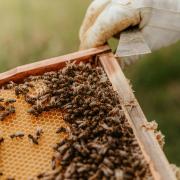
The Uk's second lockdown came into fruition on Wednesday 4th November in order for citizens to remain safe and to slow down the spread of the virus. However one critical statement was made, that schools and universities were to remain open.
These two statements are very contradictory as statistically young people aged 10-19 are more likely to spread coronavirus in their household, says a study from South Korea. Researchers followed 5,706 coronavirus patients from January 20 to March ”when schools in South Korea were closed who were the first to report COVID-19 symptoms in their household and traced all of their contacts to determine how the virus spread.
The study found that young people, between the ages of 10 to 19, were not often the first in their household to show symptoms but when they were, 18.6% of their contacts contracted the disease, which is more than any other age group. This data is also being used to advise the american government whether they should open schools or not.
Yet despite this the government is determined to keep schools open, regardless of the effects of the members of these school children’s households. Current statistics highlight that around 1 in 130 people in the country have COVID-19. Well the average secondary school has around 900 students not including staff. Therefore following this data every secondary school in the uk should have at least 7 cases of coronavirus in their school. Now this number may seem small compared to the 893 students without coronavirus however with the high rate of infection from COVID-19 combined with a lack of enforced social distancing measures these statistics have the potential to turn dangerous very quickly.
When students were asked if social distancing had been effective in their schools one replied “ whilst people make an effort to keep a distance, at break and lunch time it is impossible to keep two meters apart. Also as most students get public transport alongside other year groups it is inevitable that bubbles will mix.” Another student replied “even in bubbles there are hundreds of students with no space to socially distance in lunch halls.”
Of course, people aged 10-19 are less likely to die from the virus. But going to school will give them the opportunity to contract and spread the virus to those they live with at home, potentially being their parents or grandparents who are in age brackets that are a lot more likely to die if they contract the virus. When we asked a small group of students when they were worried one said that “it is something that worries me a lot, as my dad is in the age range which places him at a higher risk if he catches the virus. I have to be in contact with a lot of people during the day, and even though my dad stays at home, there is still the possibility that I could bring the virus home and infect my family.” Another student who lived with her grandfather whilst she was attending school in the pandemic stated that “initially I was very worried when I lived with my grandpa, as he is very high risk, I was very cautious while at school however social distancing was very difficult as in my bubble there where over 200 students”
Without a doubt education is important to all of Britain’s children however the government often underestimates how much education can be done online. A teacher from a school in Sutton stated that although “nothing fully supplements the classroom experience” the success of online education “depends on student access, if the government provided the funding and invested in remote learning they’d find it to be a lot more effective” she also noted that the way remote learning had menat the teachers had “gained an enormous amount of computer literacy skills” that students also “valued online education, especially having access to the powerpoints, resources ect...”
Overall the government’s plans to keep schools and universities open may do more harm than good with the increasing number of students who go home and infect their family members. Education is vital to all of Britain's children however with a growing number of coronavirus cases and a lack of social distancing in schools it is important to consider the potentially deadly ramifications of keeping schools open this December.



























